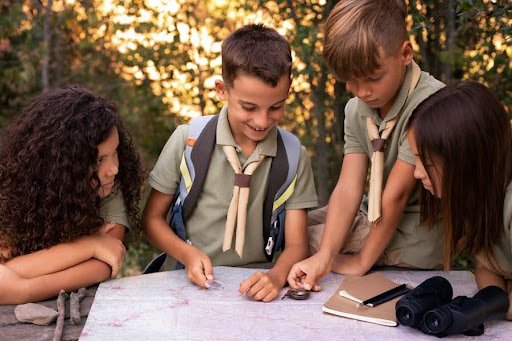Essential components of a student’s learning path are educational trips. Offering a welcome break from conventional classroom instruction, they expose kids to real-life situations. Whether it’s visiting science museums, seeing wildlife, or discovering historic sites, these excursions bring subjects to life. Such travels help a student’s self-development and confidence as well as improve their academic understanding. Arrangements, particularly for transportation, are essential while organising a good tour. Many schools, therefore, hire mini bus services for secure and pleasant group transportation. A well-planned tour with safe travel allows kids to concentrate on learning and bonding, free from the stress of prolonged, exhausting trips. We will examine in the ensuing parts why learning becomes a lifelong adventure and why educational tours are so important in moulding young brains.
Learning Beyond the Classroom
Books can get you only so far. Educational tours let pupils experience what they learn. Walking about a historical site brings history to life. A visit to a planetarium or scientific museum makes science interesting. These actual events clarify understanding. Seeing and doing help knowledge stick. Students remember their topic longer when they touch, see, and engage with it. This is education beyond textbooks and theory.
Boosts Curiosity and Interest
Children are innately inquisitive. Educational tours satisfy this inquisitiveness. Students ask questions whenever they tour a manufacturing plant, a zoo, or a museum. They obtain replies from experts or instructions. This leads them to crave more information. It’s exciting to see a dinosaur skeleton or a live volcano model. It ignites fresh passions and might even affect career decisions. A straightforward tour can help a youngster see a world of possibilities.
Encourages Social Skills and Teamwork
Travel, group activities, and shared experiences define tours. Students need to engage with their teachers, advisors, and peers. This helps in the development of communication abilities. They also develop cooperation, respect, and patience. Teamwork is fostered via group activities on tours. Students must work together, whether they are investigating a location or finishing a project. Through these encounters, more social confidence and closer connections are created.
Develops Independence and Responsibility
Usually, a student’s first time far from home is an educational tours. It instructs them on time management, safeguarding their belongings, and adherence to schedules. These are rudimentary but priceless life skills. Students become accountable for their actions, having to adhere to regulations, be punctual, and remain attentive. These little lessons help form their general character and self-discipline.
Connects Theoretical Knowledge with Practical Use
Educational tours help to close the distance between actual life and classroom instruction. Students learn how weather forecasts are created by touring a meteorological station. Seeing how food grows on a farm reveals something they only read about in textbooks. Learning is worthwhile since it is based on these connections. They enable pupils to understand the value of their studies. This inspires them to approach their studies with greater gravity.
Promotes Cultural Awareness and Tolerance
Tours sometimes bring pupils to unfamiliar towns, areas, or even nations. During these experiences, they also learn valuable lessons about starting a business by observing local markets, small enterprises, and cultural trade practices. They come across individuals from a variety of customs and traditions, which encourages them to appreciate and comprehend other civilizations. Learning about several lifestyles opens pupils’ minds and helps them understand how starting a business differs across cultures and societies. It fosters acceptance, empathy, and tolerance, crucial principles in today’s global environment. Travel to places of historical or religious significance also enhances learners’ awareness of history, belief, and the role of entrepreneurship in shaping communities. They see how different societies live, celebrate occasions, interact, and approach starting a business in their unique ways.
Creates Long-Lasting Memories
School life goes beyond textbooks and tests. Making memories as well is part of this. Educational tours provide pupils with stories they will never forget. The laughter, the bus rides, the group photos these memories stay with them. Such recollections also help to build ties between instructors and pupils. They give academic life more meaning and happiness. These vacations are an annual highlight of the academic year.
Conclusion
Educational tours are not only entertaining. They are vital for well-rounded development. Their influence is great, from enhancing academic understanding to creating life skills. Schools must continue to schedule these trips as part of their daily routine. Students develop into wiser, kinder, and more confident people as they acquire knowledge through discovery of the world. That is the genuine aim of learning.


